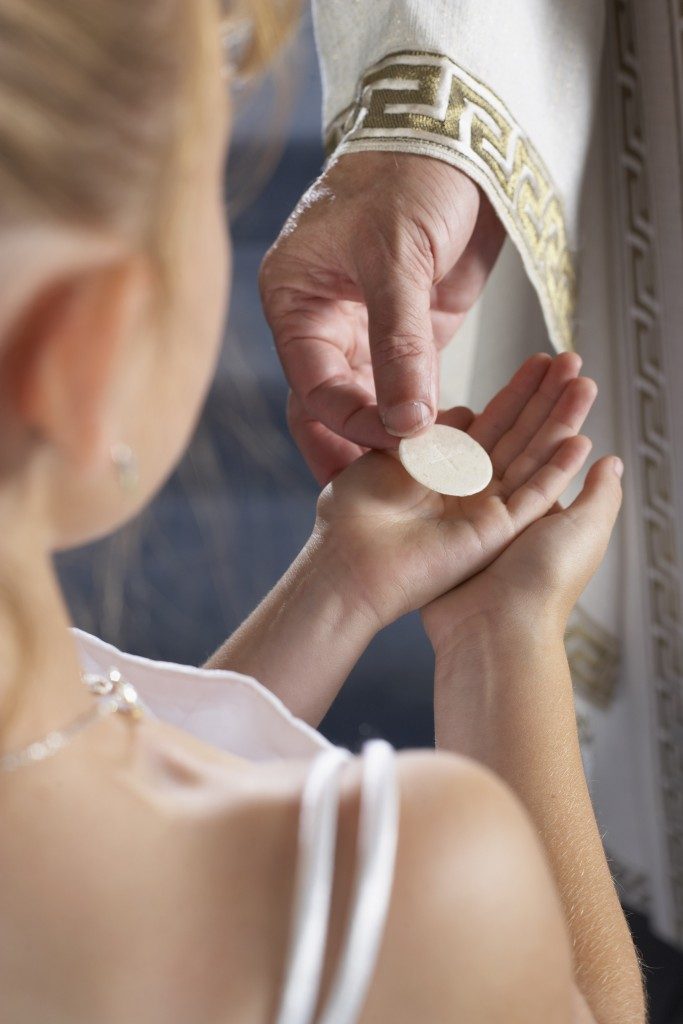
Literally spitting on sacred beliefs
By Cazzy Lewchuk, Opinions Editor
Many Christian churches have some form of communion, during which attendees taste a representation of the body and blood of Christ. Although the ceremony and ingredients vary by denomination, it’s generally represented by crackers/bread and wine or grape juice.
In the Catholic Church—by far the world’s largest church and Christian denomination—communion (known as the Eucharist) is very serious business. While many churches offer open communion and see it as purely symbolic, Catholics believe their ceremony to be strictly for members, and a holy affair. Through a mysterious process known as “transubstantiation,” it is believed that the substance or essence of the offerings actually become the body and blood of Christ.
Catholics in good standing receive the Eucharist, literally ingesting the eternal love of Christ, who is also God. The ceremony is conducted under specific circumstances: Only Catholic priests are allowed to bless the crackers and wine of communion. Until the ceremony begins, it’s just a cracker, but after consecration, it has become infused with a literal reality of God’s presence.
To a non-Catholic it may all sound silly. Those who don’t believe won’t understand the process, and may go so far as to “desecrate” the host to mock the religion. This is treated as a mortal sin, on par with murder or other serious offences, and is punishable by excommunication (formal exclusion) from the Church. It may seem silly, but the host is a representative of God/Jesus, who is obviously the most holy and important part of Catholicism. By violating the host, you are, in effect, spitting in the face of God. It’s not just disrespectful to their religion, it’s downright hurtful. Host desecration remains a problem wrestled with by the Church continuously: from disillusioned Catholic school kids, to a professor in Florida in 2008 who encouraged people to send him desecrated hosts and posted photos online.
I’m not Catholic. I’m not even religious, and I don’t believe that a cracker is actually infused with the essence of God because of a priest’s actions. There are a lot of things I don’t agree with in Catholic doctrine, and spitting on a cracker (as opposed to eating it and turning it into feces) is only one of the many things I don’t believe will harm your eternal soul. But I do recognize the incredible rudeness of mocking someone’s deeply held personal beliefs.
When you go out of your way to mock someone’s religion by violating their sacred beliefs, you’re really hitting below the belt. You’re certainly free to make that point and believe whatever you want about it, but you’re deliberately upsetting hundreds of millions of people so that you can make a smug point about how you don’t agree with them.
Indeed, I believe non-religious people seem to have a double standard for Western religions that are more commonly known and practiced. It may be because their prevalence in our culture makes them more acceptable targets to mock. Someone who’s quite happy to spit on a sacred communion cracker might not be as comfortable disrupting a traditional Native spiritual ceremony. Both cases are infringing on people’s sacred spiritual beliefs that are incredibly important to them—even if they aren’t to you. If you’re comfortable upsetting that many people for your own self-satisfaction, and if you’re confident God won’t be upset, it’s your freedom to do what you want. But you should always consider what your actions say about you, and how they are perceived to others.
